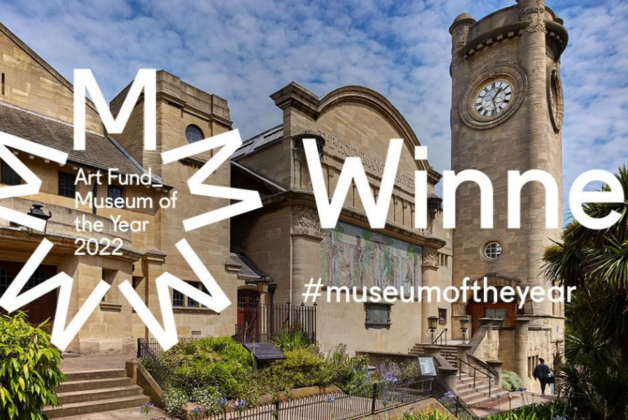Main Image: HMS Caroline, Belfast. Photograph by Marc Atkins
Five museums have been shortlisted for Art Fund Museum of the Year 2019 representing each of the four UK nations. They are:
HMS Caroline, Belfast | Nottingham Contemporary |Pitt Rivers Museum, Oxford | St Fagans National Museum of History, Cardiff | V&A Dundee
The winning museum will be announced at a ceremony at the Science Museum in London on Wednesday 3 July 2019 and will receive £100,000. The other four shortlisted museums will each receive £10,000 in recognition of their achievements.
Stephen Deuchar, director, Art Fund, speaking on behalf of the judgesDespite (or perhaps because of) the complex environment of our times, the UK’s museums continue to challenge and inspire. The five shortlisted museums have each offered outstanding and different approaches to the vital task of engaging with the widest public in new and adventurous ways. We congratulate all those who are on the shortlist and encourage everyone to go and visit them
The Art FunD on its shorlisted museums:
HMS Caroline, Belfast
As the last remaining British light cruiser ship from the First World War and the Royal Navy’s sole survivor from the Battle of Jutland, the largest sea battle of the First World War, HMS Caroline offers an extraordinary insight into naval history, maritime warfare and the story of the Irish sailor. After averting plans to scrap the ship, an ambitious £20 million project to rescue, conserve and restore HMS Caroline was completed in 2018. The ship now offers an inclusive and accessible space for everyone to enjoy. An innovative learning programme and an immersive introductory exhibition in the newly renovated Victorian pump house surrounding the ship brings HMS Caroline’s long history and 90-year presence in Belfast alive.
Nottingham Contemporary
Since opening in 2009, Nottingham Contemporary has reached over 2 million people through its contemporary art exhibitions and engagement activities. Last year contained several watershed moments for the gallery, in which three critically acclaimed exhibitions shined a light on the work of women artists, and on overlooked and marginalised cultural practices. Virtual reality tours of the exhibitions allowed online visitors across the world to engage remotely. In 2018, the gallery also presented innovative performance art and ran educational programmes aimed at families, pupils, teachers and women in difficult circumstances, which saw a 25% increase in participation within these groups.
Pitt Rivers Museum, Oxford
Showcasing one of the most important collections of anthropology and archaeology, the Pitt Rivers Museum is remarkable for its singular approach to the presentation of objects and its willingness to encourage new interpretations. In 2018, the museum embarked on a series of innovative programmes: ‘Hope’ asked radical questions about their collection’s colonial past, ‘Making’ examined the link between making objects and health, ‘No Boundaries’ worked with refugees to reinterpret collections, and ‘No Binaries’ encouraged queer responses to the museum’s collections to celebrate diversity and challenge prejudices. The museum’s 600,000 strong collection of objects and new creative programmes brought in a record-breaking 502,000 visitors last year.
St Fagans National Museum of History
One of Wales’ most popular heritage attractions, St Fagans explores the history and culture of the country. Last year the museum completed its Making History project, a £30 million redevelopment to become Wales’ National Museum of History, opening new galleries and workshop spaces and transforming its visitor experience. Throughout the development, the museum remained open, welcoming 3 million visitors to enjoy recreated iron age houses, royal residences and a new craft centre, as well as engaging 720,000 people in shaping the museum’s transformation through an imaginative public programme – reflecting the museum’s aim to create history ‘with’ rather than ‘for’ the people of Wales.
V&A Dundee
In September 2018 V&A Dundee opened its doors after 11 years of planning and construction, becoming the UK’s first design museum outside London. At the heart of Dundee’s waterfront, the building designed by Kengo Kuma is both a striking intervention and a feat of engineering. The museum showcases international design alongside the outstanding achievements of Scotland in the museum’s permanent Scottish Design Galleries and a programme of major exhibitions. Born from a unique partnership between the V&A, local government, universities, enterprise and communities, the new museum has helped regenerate the area, with 100,000 people interacting with the museum’s pre-opening programme and over 500,000 people visiting since it launched.




